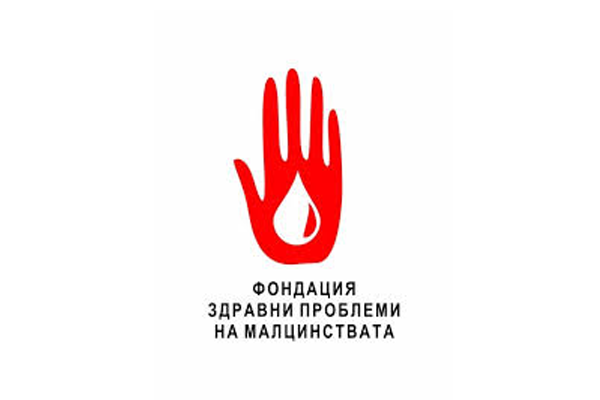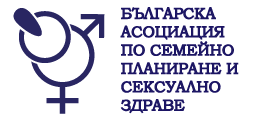-
Who We Are
WHO WE AREThe International Organization for Migration (IOM) is part of the United Nations System as the leading inter-governmental organization promoting since 1951 humane and orderly migration for the benefit of all, with 175 member states and a presence in over 100 countries. IOM has had a presence in Bulgaria since 2000.
About
About
IOM Global
IOM Global
-
Our Work
Our WorkAs the leading inter-governmental organization promoting since 1951 humane and orderly migration, IOM plays a key role to support the achievement of the 2030 Agenda through different areas of intervention that connect both humanitarian assistance and sustainable development. Across Bulgaria, IOM assists the development of national mechanisms to combat and counteract trafficking in human beings and supports victims of trafficking.
Cross-cutting (Global)
Cross-cutting (Global)
- Data and Resources
- Take Action
- 2030 Agenda
Partners
"Consortium NNHM - BFPA - EMHPF" brings together three NGOs: the National Network of Health Mediators, the Bulgarian Family Planning and Sexual Health Association and the Ethnic Minorities Health Problems Foundation. The team of the three organizations is multidisciplinary and includes a wide range of expertise in the fields of health, sociology, cultural studies, integration of vulnerable groups, ethnic communities. The activities of the specialists include data collection, communication with institutions, advocacy, training, and supervision of resource people, as well as active field work directly with target communities.

Association "National Network of Health Mediators"
The National Network of Health Mediators was established in 2007 by health mediators, health mediator trainers, health professionals and experts in the field of sociology, culture and social activities with the following objectives:
- To work towards improving access to health services for vulnerable groups through the promotion of the health mediation model; Identification, training of health mediators (HMs);
- Identification, training of health mediators (HMs);
- Support and advocacy at local, regional, national and international level for the development of (health) mediation programmes in Bulgaria and Europe;
- Continuous training and qualification upgrading of HMs working in Bulgaria and exchange of experience, including outside the country;
- Introduction of good practices to improve access to health and social services for vulnerable groups;
- Implementation of projects related to raising the awareness of Roma communities on health and social issues.
In 2020, there were 260 health mediators in Bulgaria working on a budget delegated to 138 municipalities. In 2021, in order to expand the coverage of the health mediation programme, funding will be allocated to increase the number to 290 health mediators. The health mediators have considerable experience working in different types and sizes of vulnerable Roma communities in the target municipalities. The health mediators practicing in Bulgaria, with few exceptions, are members of the National Network of Health Mediators and are involved in the implementation of various projects related to their competence.
Support and advocacy at local, regional, national and international level for the development of (health) mediation programmes in Bulgaria and Europe;
Continuous training and qualification upgrading of HMs working in Bulgaria and exchange of experience, including outside the country;
Introduction of good practices to improve access to health and social services for vulnerable groups;
Implementation of projects related to raising the awareness of Roma communities on health and social issues.

The Ethnic Minorities Health Problems Foundation (EMHPF)
The Ethnic Minorities Health Problems Foundation (EMHPF) was established in 1997 as a public benefit non-governmental organization (NGO) with its headquarters in Sofia.
Its team is interdisciplinary and includes doctors, psychologists, educators, social workers and activists, and representatives of different ethnic groups, and has been working to address Roma health issues since 1994. It has worked successfully with Roma coordinators from across the country, as well as with local Roma foundations. It engages and trains Roma medical staff.
In the course of its work between 1994 and 1997 to address Roma health issues, the EMHPF team came to believe that, in order to achieve lasting positive results in this area, many social problems of minority groups needed to be addressed in advance and in parallel. This gave rise to the idea of expanding the original research and health-oriented profile of their activities by creating a foundation with a much broader social orientation. Thus, after the establishment of the EMHPF, their team started working on the implementation of various medico-social projects.

Bulgarian Family Planning and Sexual Health Association (BFPA)
The Bulgarian Family Planning and Sexual Health Association (BFPA) is a public benefit NGO founded in October 1992. BFPA's objectives are focused on promoting and offering quality modern reproductive health services, providing information and training in health and sexuality education, safe sex and contraception, and advocacy for disadvantaged groups. The organization's target groups are diverse - young people, young people from institutions, disadvantaged ethnic minorities (with a main focus on Roma), health professionals, municipal and public administration, NGO teams, teachers, academics, women in remote and rural regions, prisoners, journalists and many others.
BFPA has its own centres across the country and also partners locally with a number of municipalities and NGOs across the country, ensuring national coverage of its initiatives and dissemination of information and materials through various existing information channels. The Association has 6 full-time staff and 20 part-time staff. In 2019, the organization was also supported by over 240 volunteers. BFPA members, who make up the team, the governing body and the volunteer resource of the organization, are representatives of different professional backgrounds: doctors, midwives, nurses, lawyers, journalists, educators, psychologists, economists, social workers, health mediators, young people, representatives of the target groups of BFPA projects. This diversity of professional and social expertise helped the organization to successfully implement over 75 projects funded by over 50 different donors and donor programs.